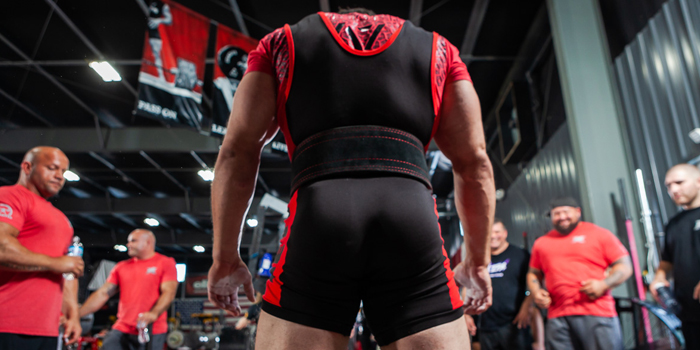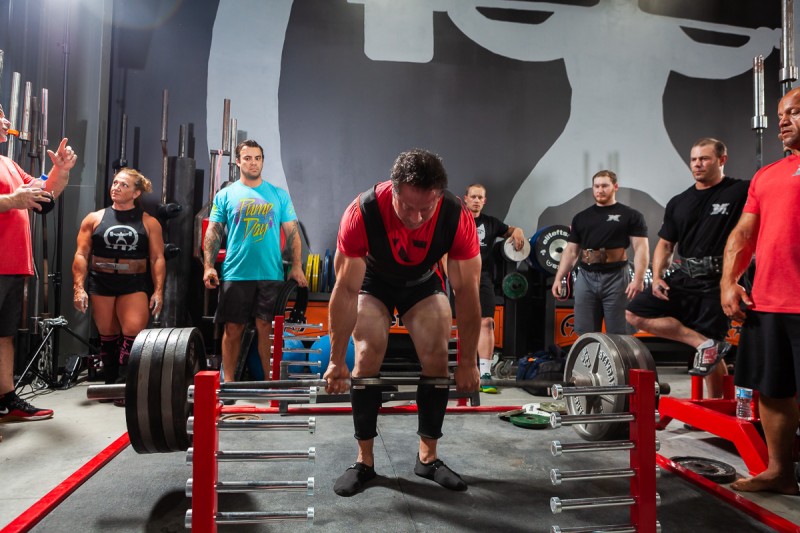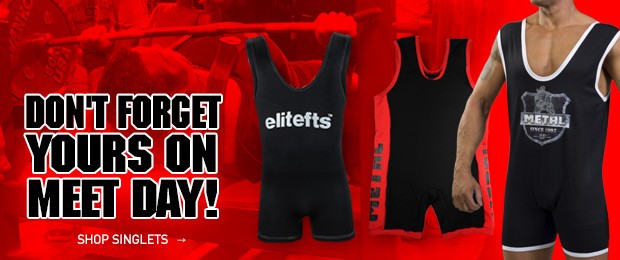
You’ve just signed up for a meet, whether it’s strongman, powerlifting, weightlifting, or any other endeavor. Your training is on point. You’ve dialed in your nutrition, and everything seems to be going well—until it’s time to compete. This is the make-or-break point for a lot of people. Why do so many people do so well in training but nosedive when it’s time to compete? Anxiety and self-doubt. That’s it. Now, let me preface this by saying I’m not a sport psychologist. Rather, the following pieces of advice are things I’ve noticed over the past decade when it comes to athletes who shine versus athletes who crumble.
I believe that confidence and nervousness are the same exact emotion; how you steer that emotion is the difference between success and failure. When you arrive at a meet, so many stimuli enter your brain upon first glance. Looking over your competition, you might see someone who is much larger and seems to look stronger. The sight of the crowd, the implements, and just the organization of everything can be overwhelming to someone who is competing for the first time. Hell, it can be overwhelming even to some seasoned athletes. The key point is that no matter what level you’re at, you’re going to feel very nervous as you enter the competition.
RECENT: Don't Be a One-Trick Pony
How do we go about overcoming this nervousness and performing in the best way possible? Here are a few things I use to make sure that I can perform to the best of my ability come game day.
Preparation
This one should seem obvious, but unfortunately, a lot of people live by the ethos of “it’ll be there when it’s time.” The only person I’ve ever heard say this, and I truly believed it, was Big Z. Other than that, I’m going to be pretty skeptical of your claims. Don’t half-ass an event during training because you don’t like it or you’re not good at it. Train for it to the best of your ability, and make sure that you’re confident with the event before competing. This leads me to my next point.
Self-Awareness
Be honest with yourself. What are your flaws when it comes to competing or to the events? Confidence is great, but without self-awareness of your shortcomings, confidence alone will never be able to provide high-level performance. Ask your training partners for feedback and criticism, and make sure that you LISTEN. Go through your training logs, and look at where you’re lacking. Being self-critical and taking criticism will make you a better athlete and more confident on game day.
Visualization
Cliche much? Yeah, I know, but this is a huge one. I know there are studies supporting this, but I’m too dumb to read or interpret them, so I just have to go off of anecdotal evidence. From talking to a lot of high-level strength athletes, one thing I’ve come across multiple times is how powerful visualization is. Athletes have told me how they will miss a lift because they didn’t visualize themselves going through it beforehand. They are too aroused by the stimuli around them that they get too amped up, and boom, it all goes to hell. However, once they take the time to visualize the movement in their heads and breathe, they come back and hit the lift with ease. Stop, visualize, and breathe.
Breathing
A while back, before I was part of Team elitefts, I attended a Learn to Train where Bryan Mann spoke about optimal arousal for competing. It made a lot of sense to me, and he further explains it here. I’ve noticed personally that if I’m in the hole, my heart rate shoots up, I start to shake, and I might even feel nausea, but noticing that and using breath control techniques will help me to get back to the point where I am not necessarily calm but I am not freaking out, either. I’m right in that sweet spot where my heart rate is elevated, and I still have that “nervous” feeling but can control that feeling in my performance. Read that article. He’s much smarter than I am.
Focus
Obviously, you should be focused at the task at hand, but a big issue I see with a lot of newer competitors is worrying about what their competition is doing. This isn’t some rah-rah feel-good thing about going out there and just competing for yourself. Screw that. Go out there and compete to dominate. However, upon your arrival at a meet, you may see your competition and become nervous. You may have watched their training videos, and they may have been putting up numbers that seem out of your reach. Well, screw them. Stop worrying about what they’re doing. Stop worrying about how big your competition is. Use data from other competitors as points of reference as to where you should be when it comes to game day, but other than that, focus on yourself and your game plan.
Have Support and a Strategy
This is a big one. Have someone with you who understands strategy and points. Hopefully, you have some good training partners who can do this for you, but if you don’t, learn how the point system works, and have a strategy going in. It is extremely refreshing to know going into an event that you need to hit only a certain number of reps to win an event, and if it’s not your event, it’s good to come in with an understanding of the minimal amount you need to do to stay in the game and throw some points on the board.
All of these points have been keys that have helped me and many other athletes during competition. Using these strategies, you’ll be able to take that anxiety and turn it into confidence. Don’t be one of those guys who thinks it’ll be there on game day. Prepare, perform, prevail.











